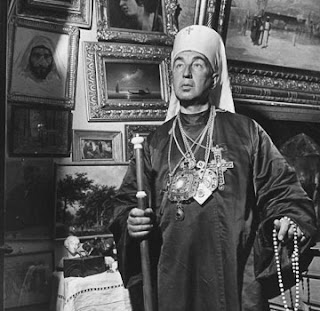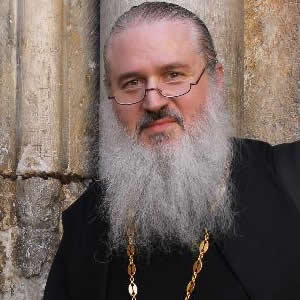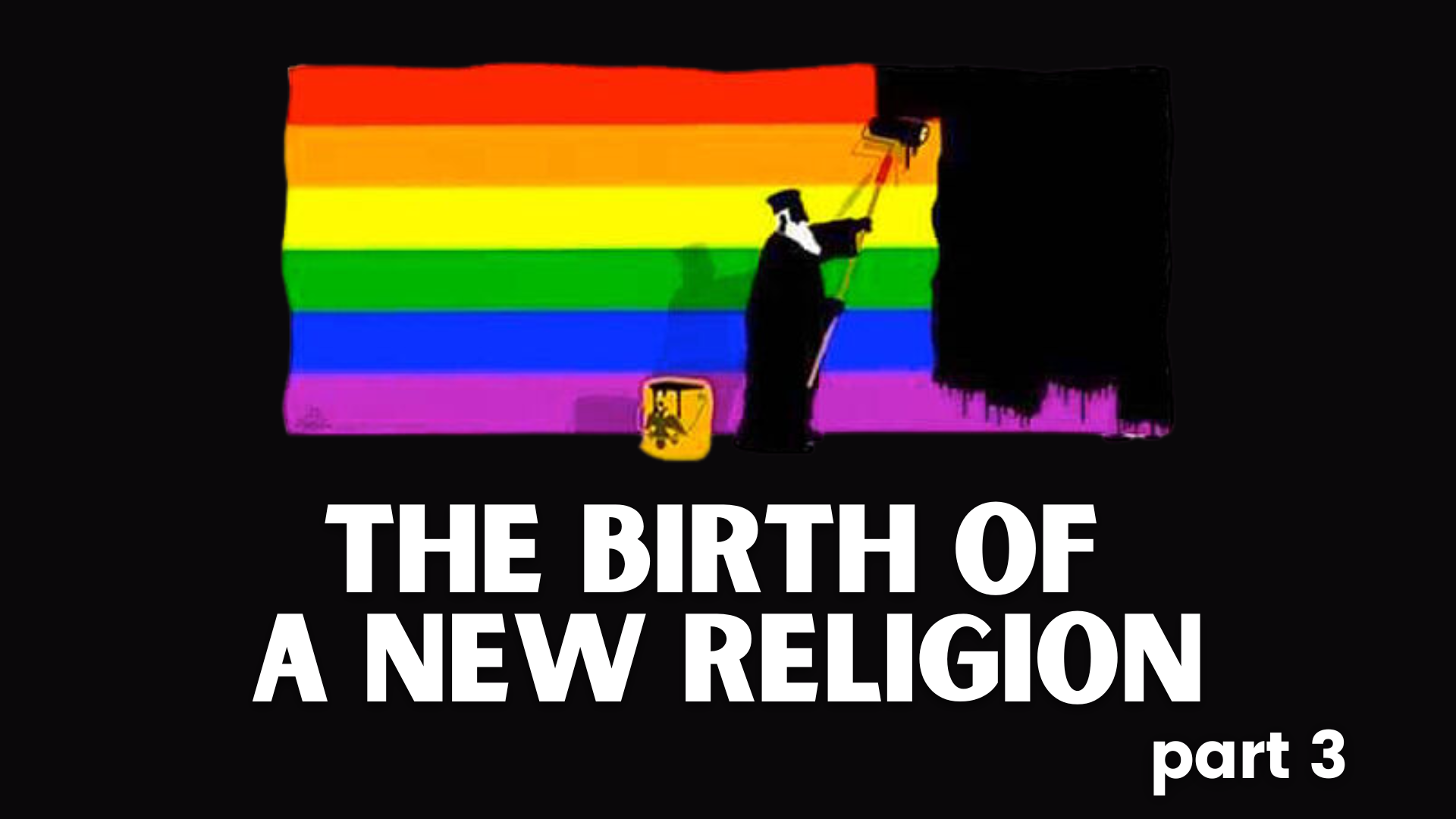The Birth of a New Religion, Part 3
For Part 1, see: The Pro-Abortion “Orthodox” (The Birth of a New Religion, Part 1)
For Part 2, see: The Pro LGBTQP “Orthodox” (The Birth of a New Religion, Part 2)

Renovationists are people who see that the Church is out of sync with the modern world, and rather than conclude that the world needs to repent and come into line with the teachings of the Church, instead assume that the Church is what needs to be fixed. To them, the solution to this problem is to make the Church more like the world, rather than to make the world more like the Church.
In any given time or place, one can certainly find problems within the Church, and see a need to do something about those problems. And so a desire to see things change within the Church is not necessarily a bad thing. One could point to the example of the Kollyvades Fathers, or even to St. John Chrysostom, as people who saw spiritual deficiencies within the Church, and spent their lives trying to raise the general spiritual level of those around them. But the big difference between people like the Kollyvades Fathers, St. John Chrysostom, and the Renovationists is where they look for answers to problems and where they want to take things. The Kollyvades and St. John Chrysostom embraced the authentic Traditions of the Church and the teachings of the Scriptures and Holy Fathers who came before them. Renovationists look outside the Church for answers.
When Renovationists see that the Church is out of sync with the mindset of the modern world, they are embarrassed that the Church is “backward,” or “old fashioned,” or “stuck in the past.” They do not approach things by seeking to better understand the Orthodox Tradition, or to come closer to the mind of the Fathers. They have a worldly mindset, and their solutions are worldly. They do not have a belief in what the Church teaches, but perhaps have a sentimental attachment to the Church, or they may simply see using the Church to promote worldly agendas as advantageous.
Renovationism first began to appear in the Orthodox Church in the early 20th century. It was most obviously embodied in the “Living Church” in Russia, but it was also behind the agenda of Patriarch Meletios Metaxakis as seen in his 1923 “Pan Orthodox Congress,” and this also explains why he later recognized the “Living Church” schismatics as the legitimate Church in Russia, and threw the authentic persecuted Russian Church under the bus. What was their agenda? They wanted to switch to the New Calendar. They wanted to shorten the fasts, shorten the services, allow bishops and monks to marry, and priest to remarry, and to marry widows. They also wished to introduce liturgical innovations. The Living Church died off in Russia, because the faithful in Russia rejected it, but Renovationism has continued to exist elsewhere, and while all of the aforementioned issues are still on the table for them, they have added quite a few since then.
Renovationism is closely related to Protestant liberalism and its “Social Gospel.” Advocates of the Social Gospel, having lost faith in anything like the actual Gospel, seek to hitch their wagons to anything current in the culture that might make them relevant. Unfortunately, they usually are about 10 years behind the culture, and so by the time they hitch their wagon to an issue, the culture in general has moved on to the new “current thing.”
Some more current examples of renovationism are the push for the acceptance of homosexuality and transgenderism in the Church, the push for ecumenism and religious syncretism, the acceptance of abortion as an acceptable option for Orthodox Christian, the ordination of women, and pretty much any other “current thing” that is being pushed. The Ecumenical Patriarchate’s acceptance of the schismatics in Ukraine is in many ways similar to the Ecumenical Patriarchate’s entering into communion with the Living Church in Russia. The Schismatics in Ukraine are concelebrating with Uniates, and are open to the acceptance of homosexuality — which makes the Living Church look like conservative traditionalists by comparison.
Just to cite a few recent examples of renovationism at work, we have Archbishop Elpidophoros of the Ecumenical Patriarchate baptizing the children of a homosexual couple (produced with surrogate mothers) and using the occasion to celebrate the acceptance of both homosexuality and using poor women to produce surrogate children for homosexual men. Archbishop Elpidophoros also felt the need to align himself with Black Lives Matters and to march with them in a protest, despite the fact that the organization is headed by self-described Marxists who want to destroy the family, and even while he had essentially shut down Church services in his Archdiocese due to concerns about the COVID virus.

And then you have Metropolitan Nathaniel of Chicago ordaining a gaggle of women readers, and challenging them to press forward and demand that they be allowed to fill even more roles in the Church.
And if you have ever seen a proper ordination of a reader, you will note that what happens here bears very little resemblance to what is found in the service books of the Church. Many more examples could be cited, but the point is, it is not a question of what the “current thing” happens to be, the issue with renovationism is the felt need to keep up with the “current thing.”

The problem for renovationists, however, is that people don’t get up early on Sunday morning, to go to stand in a service for a couple of hours, just so they can be like the world. They can stay home, and drink their coffee, and be like the world. What motivates people to actually go to Church is their hunger for something that the world can’t provide them, and that is the Way, the Truth, and the Life (John 14:6). The world can only point to the wrong way, promotes lies, and lead to death.
This is the third part of an ongoing series by Fr. John Whiteford, reposted with his permission.

Fr. John Whiteford is the pastor of St. Jonah Orthodox Church (ROCOR) in Spring, Texas. He is the author of Sola Scriptura: An Orthodox Analysis of the Cornerstone of Reformation Theology, published by Conciliar Press, and the general editor of the St. Innocent Liturgical Calendar.





